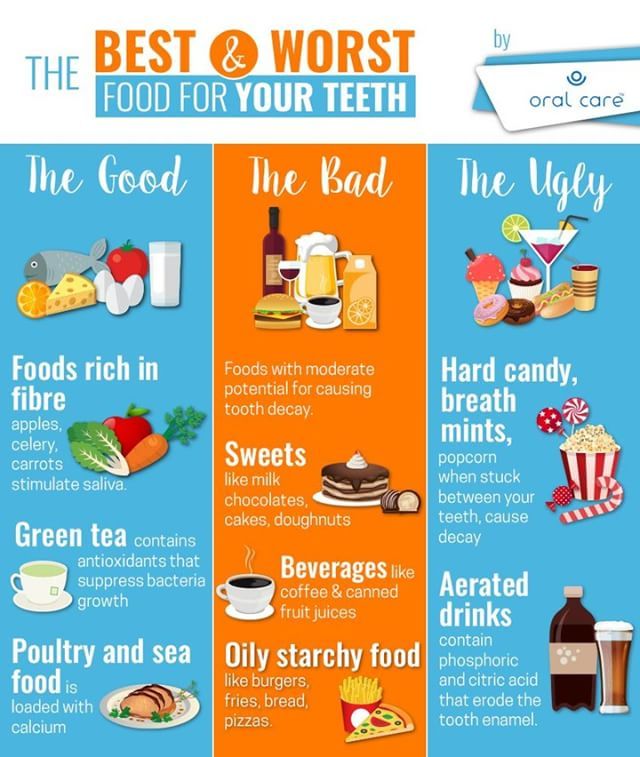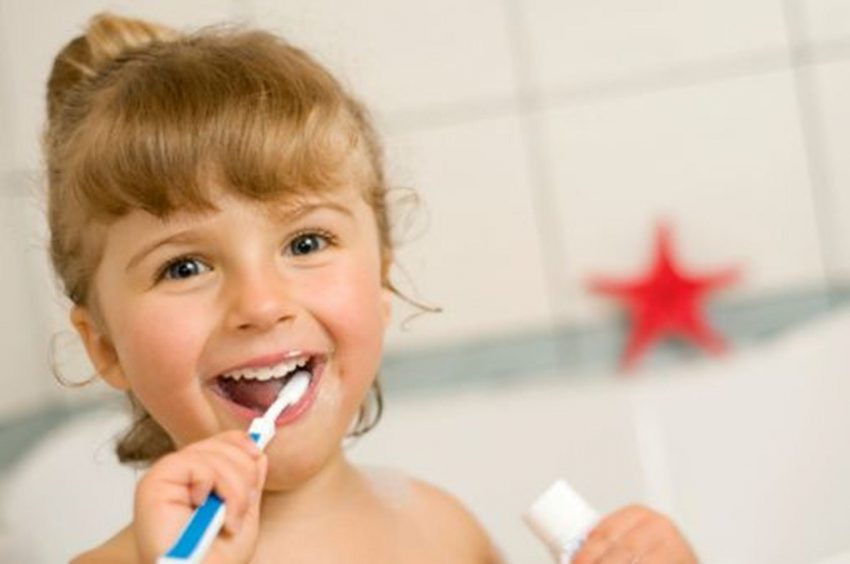The phrase, “You are what you eat,” rings all too true, although in this case, it’s your child’s teeth that will fall prey to the wrong types of food. Too many sugar-filled sodas, sweetened fruit drinks, non-nutritious snacks, other sugary foods (cake, cookies, chocolates and candies), and starches (pretzels and potato chips) can cause tooth decay. Not only do these foods have little nutritional value but over time, they can also take a toll on teeth.
To help control the amount of sugar your child consumes, read food labels and choose those that are low in added sugars. If their diets lack certain nutrients, it can be more difficult for tissues to resist infection and contribute to periodontal disease. Poor nutrition is not a direct cause of periodontal disease but the disease can be more severe in people with nutrient-poor diets.
The best thing you can do, as a parent, is to teach your child to make healthy food choices. Here are some oral-friendly foods to serve your children along with some other dental tips:
- Offer fruits and vegetables as a snack instead of carbohydrates or starchy food. Include good sources of calcium like broccoli, milk, and yogurt in your child’s diet to build strong teeth.
- Serve cheese with lunch or as a snack to trigger saliva and wash food particles away from teeth.
- Avoid sticky, chewy foods that make it difficult for saliva to wash the sugar away, or have your child brush their teeth immediately after eating them.
- If you plan to give your child any sugary treats, do it immediately after the meal. There is usually an increased amount of saliva in the mouth around mealtime which is easier to wash food away from the teeth.
- Limit your children’s habit of eating snacks as frequent snacking provides constant fuel to feed bacteria, which leads to plaque development and tooth decay.
- Avoid eating sugary foods like lollipops, hard candies, cough drops, and mints which can contribute to tooth decay as they continuously coat the teeth with sugar.
- During mealtimes, offer your child plain water instead of juice or soda. Water does not harm the teeth and aids in washing away any food particles that may be clinging to teeth.

Your child’s eating patterns and food choices are important factors that affect how quickly tooth decay can occur. Here’s what you can do to prevent the inevitable from happening:
- Encourage your child to choose xylitol-sweetened or sugar-free gum. Xylitol is known to reduce the amount of bacteria in the mouth and the chewing action helps to increase the flow of saliva.
- Prevent tooth decay by getting your child to brush twice daily with fluoride toothpaste and floss at least once a day to help remove food particles between the teeth and gums.
- If your child is taking any medication, do get him or her to brush their teeth immediately after. Medications such as cough syrup contains sugar that bacteria in the mouth use to make acids and erode the enamel.
Last but not least, you should always bring your child to visit the dentist regularly. It is recommended that you take your child to the dentist starting at age 1 or within 6 months of the first tooth breaking through the gums. Getting regular dental check-ups will help to catch any developing dental problems early.
